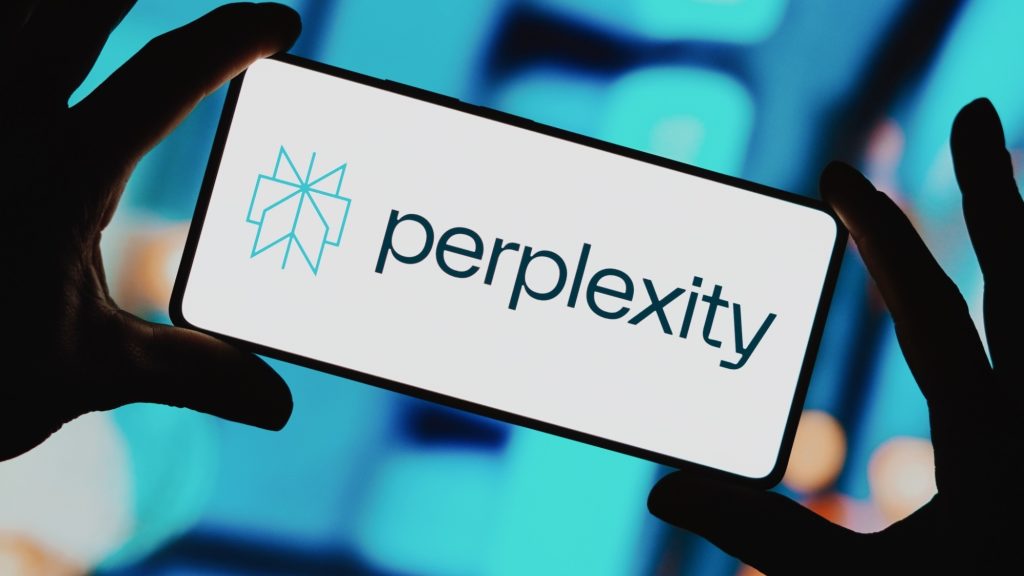Perplexity AI is an AI-driven search engine and chatbot that uses large language models (LLMs) to answer user queries by drawing information from the web and providing cited sources within its responses.
Similar to ChatGPT Search, the model combines a traditional search engine with an AI assistant, delivering answers in natural language backed by references.
The startup was founded in 2022 by a team of AI and machine learning experts — Aravind Srinivas, Andy Konwinski, Denis Yarats, and Johnny Ho — in San Francisco, with the mission to “democratise access to knowledge.”
The chatbot model aims for anyone to learn and explore topics by providing clear, concise answers instead of just links.
Backed by prominent investors (including support from Amazon founder Jeff Bezos), Perplexity has quickly emerged as a notable challenger in the Google-dominated search market.
As of mid-2024, it reportedly had around 15 million users and had answered hundreds of millions of queries
Key points
Supported devices
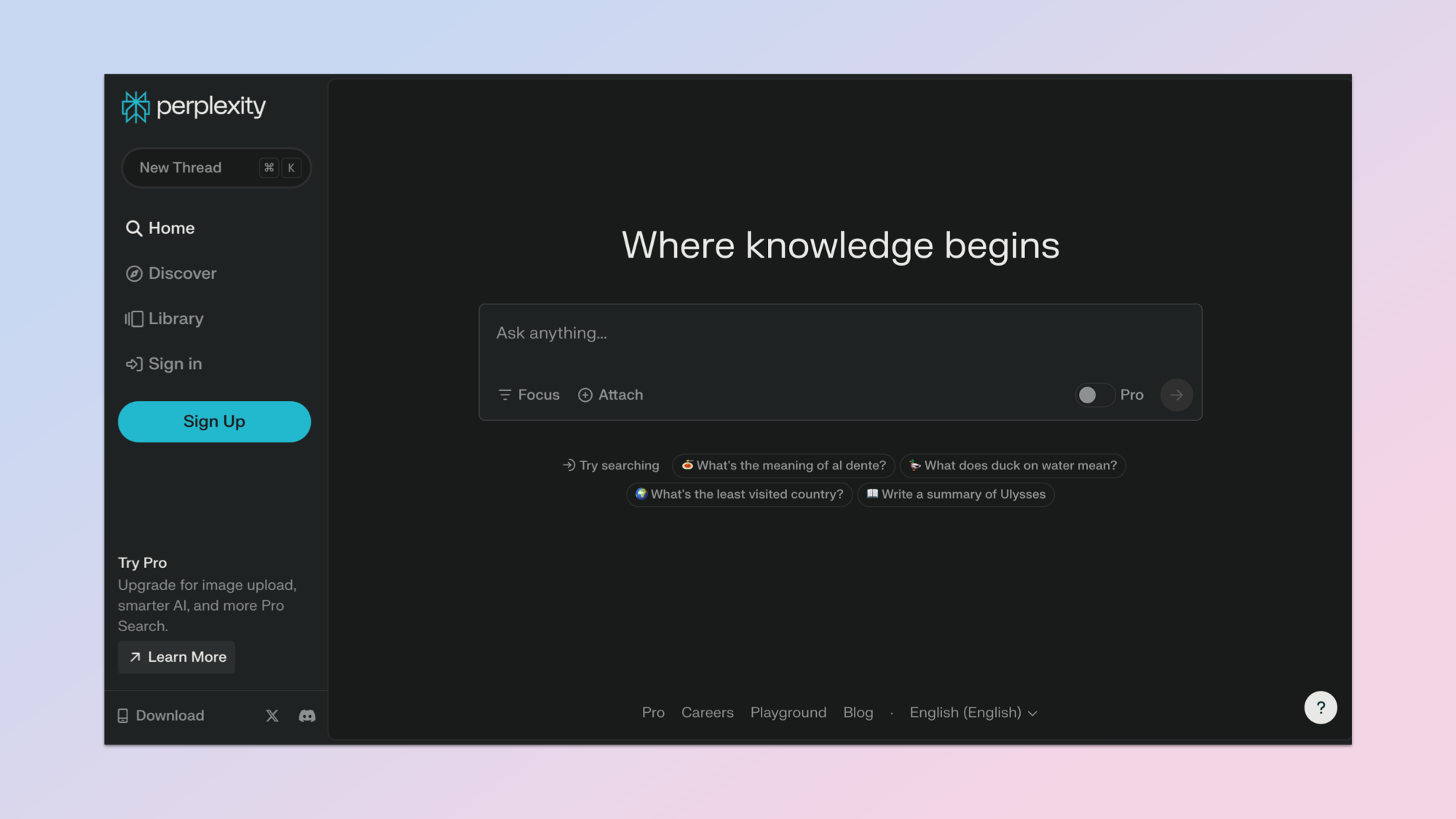
Perplexity AI is designed to be accessible across multiple platforms to ensure users can engage with its AI-powered search and assistant capabilities on most devices. Here’s a breakdown of the supported platforms:
Web browsers: You can access Perplexity AI directly through web browsers on desktops, laptops, tablets, and smartphones by visiting their official website, perplexity.ai.
Chrome extension: If you prefer browser integrations, you can download the browser extension from the Chrome Web Store and use the AI’s features directly from in your browser.
macOS: Perplexity has introduced a native application for macOS, requiring macOS 13.0 or later, available to download from the Mac App Store.
You may like
Mobile: Perplexity offers an iPhone app, compatible with iPhone and iPad devices running iOS 13.0 or later. The app supports multiple languages, including English, French, German, Japanese, Korean, and Spanish. Users on Android can download the Perplexity app from the Google Play Store.
Upcoming devices: Deutsche Telekom, the parent company of T-Mobile, has announced the development of an “AI Phone” powered by Perplexity Assistant, a potentially voice-controlled device, letting you perform tasks like booking flights and making reservations without the need for multiple apps. The AI Phone is anticipated to launch in the second half of 2025.
Key features
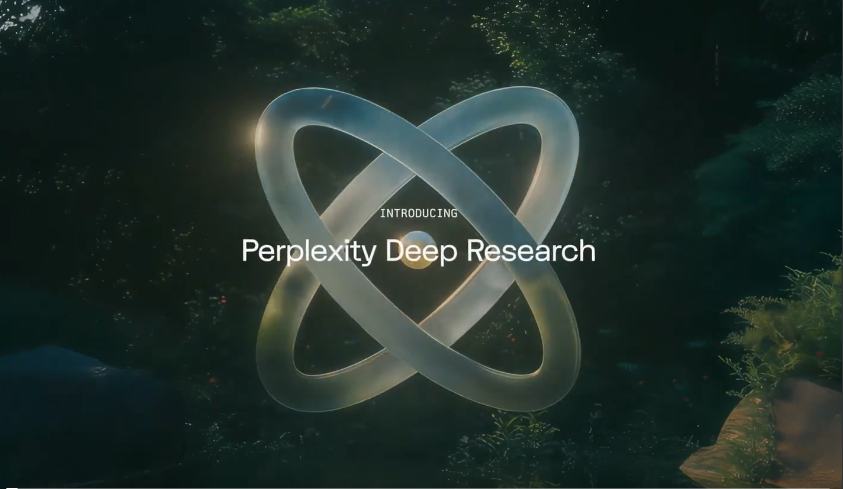
Perplexity AI offers a range of features that set it apart from standard search engines and make the experience more interactive.
You can ask questions in plain English (or other supported languages), and Perplexity responds with a direct answer or explanation, rather than just a list of links as you might get with a Google search. The answers are phrased in a conversational way, similar to interacting with a knowledgeable assistant. This makes searching more conversational and intuitive.
The inline citations support Perplexity’s answers. These appear as clickable footnotes that lead to the original web content. This type of transparency lets you fact-check and read further while also building trust and bridging the gap between AI-generated answers and authoritative information.
The interface is useful in that it supports follow-up queries in a thread that encourages conversational search. After a you get an answer, you can follow up with a related question or clarify something.
Perplexity remembers the context for a dialog-based search experience, something that helps refine results, which is another differentiator between Perplexity AI and traditional search; you can essentially have a back-and-forth conversation with the search engine, drilling deeper into a topic.
Focused searches can be made on specific sources or domains. For instance, you can enable modes to prioritize academic sources, news sites, or even community forums like Reddit.
And Perplexity’s deep research features give you even more of a deep dive into just about any subject. This versatility helps tailor results to the nature of the query – e.g. researching scholarly information vs. getting public opinions.
Creating a free account lets you search your chat history and past conversations. This is useful if you want to revisit previous answers or build on earlier queries. While the search features can be used without it, creating an account helps the AI to create a personal knowledge base of answered questions.
Accessibility
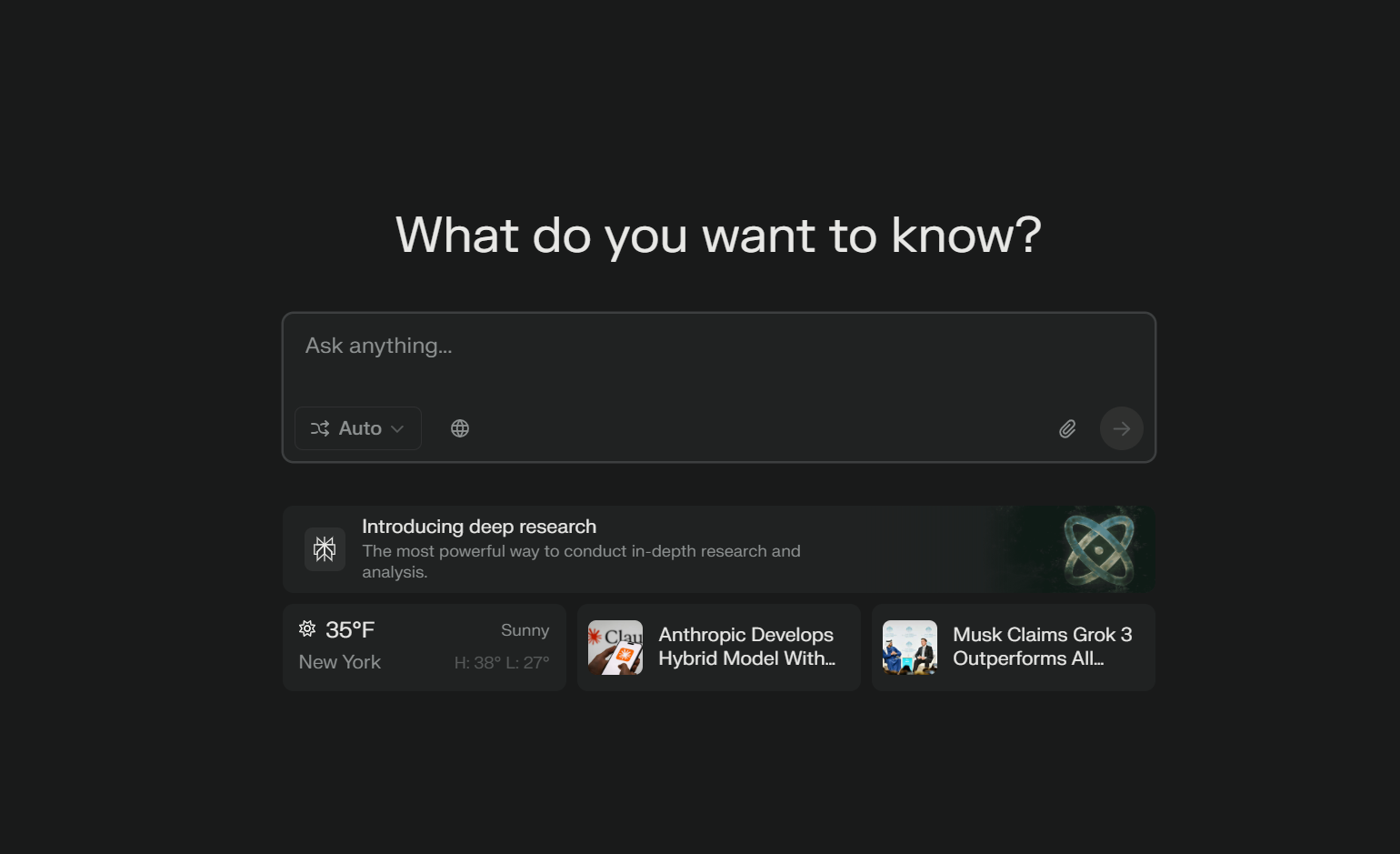
Perplexity operates on a freemium model, meaning advanced capabilities are available via Perplexity Pro ($20 per month).
Pro users can access more powerful AI models and extra tools. Notably, Pro subscribers can choose from or utilize multiple underlying models – including OpenAI’s GPT-4, Anthropic’s Claude, Meta’s Llama 2, and Perplexity’s own in-house models – to see different perspectives or improved answers.
Pro users also get higher usage limits and faster responses. Additionally, Pro enables an “upload file” feature: you can upload documents (PDFs, Word, images, etc.) and ask questions about their content, blending internal data with web search. This is powerful for analyzing reports or datasets alongside online information.
Beyond chat and search
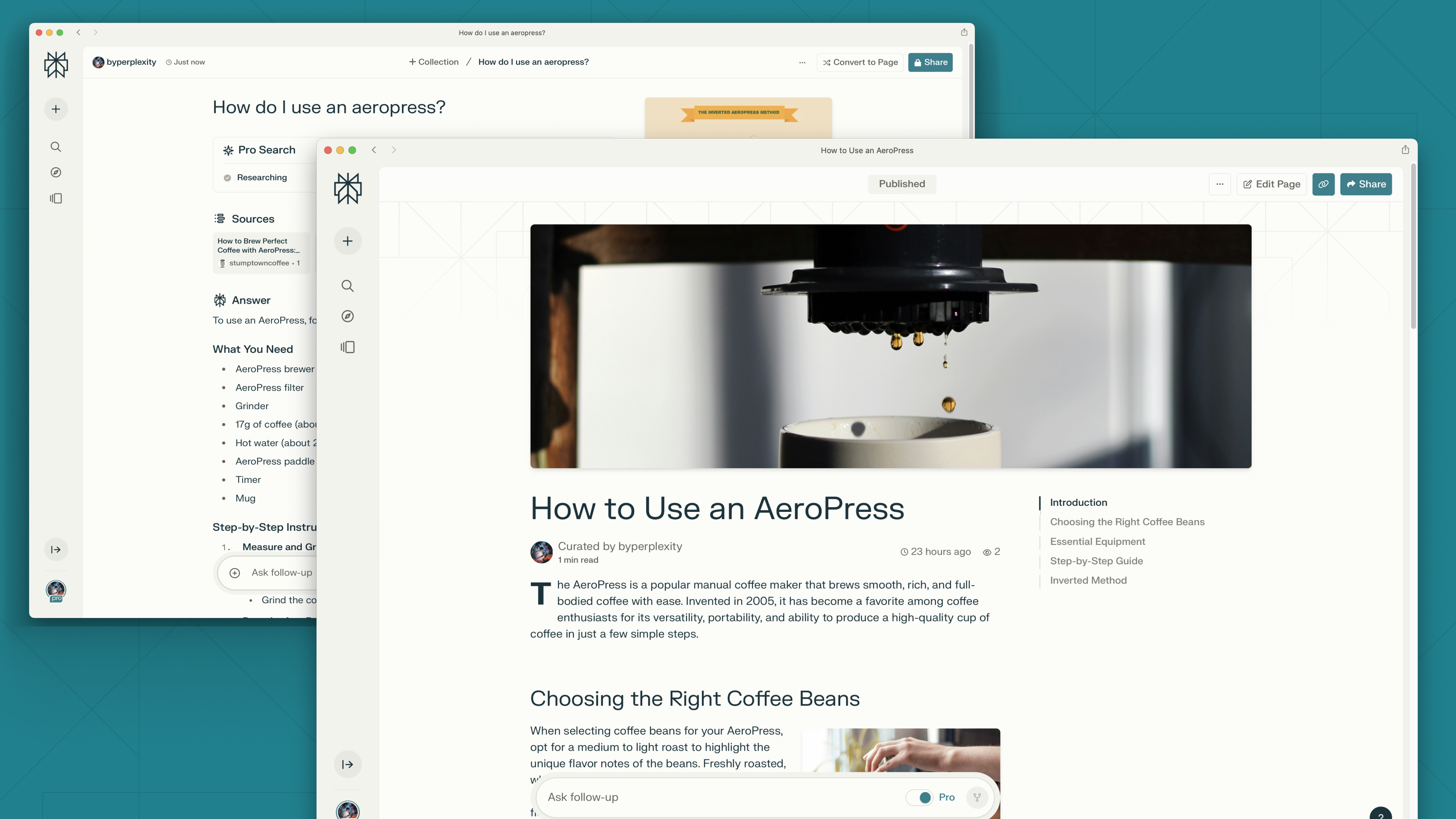
Perplexity isn’t just limited to queries. The model also has the ability to generate content in various forms. For example, it can assist with writing drafts or creating “Pages,” which are sharable documents that compile answers and sources on a topic (useful for research reports or presentations).
Images can also be generated on the platform through integrated models (such as DALL·E and Stable Diffusion) for creating visuals based on prompts.
To enhance usefulness, Perplexity has rolled out specialized search hubs. In late 2024, it launched a Shopping feature (backed by Amazon and Nvidia) where you can ask about products and get direct recommendations with product info.
The Finance lookup feature, introduced in 2024, can retrieve stock prices, company financial data, and provide basic analysis.
These domain-specific tools show how the AI can be tuned for particular verticals, giving more structured results when you’re doing tasks like shopping research or financial queries.
Limitations and concerns

Despite its impressive capabilities, Perplexity AI is not without its limitations and criticisms. Like any generative AI that uses LLMs, Perplexity can sometimes produce incorrect or misleading answers with a confident tone. These AI mistakes are often called hallucinations. Because the model is synthesizing information, it might occasionally misquote a source or combine facts incorrectly.
Perplexity tries to pull from “trustworthy” web sources, but determining trustworthiness is tricky. If the underlying web content on a topic is biased or skewed, the answer will reflect that.
The AI model itself also has biases learned from training data. This can show up in subtle ways, like how questions about controversial topics are answered. So while Perplexity might cite mainstream sources, it’s not immune to reflecting the biases present in those sources or in the broader internet.
Perplexity logs queries to improve the service (as most search engines do). There have been calls for transparency – as of mid-2024, Perplexity had not published third-party audits or detailed privacy reports about how user data is stored or used.
While it has a privacy policy, the lack of external audits means users have to trust the company’s claims.
Perplexity’s quality is tied to what it can find on the web. If information is not easily available (hidden behind paywalls, not indexed, or simply not yet written about), the AI might give an incomplete answer.
Also, if major sites block Perplexity’s crawler or requests (similar to how some sites block other crawlers), that could limit the information pool. For instance, if a site like Wikipedia or a major news site decided to disallow Perplexity, users might get fewer perspectives in answers.
Additionally, since Perplexity uses Bing’s index for search, it inherits any limitations or censorship in that index (Bing might filter certain content for legal or policy reasons, which in turn means Perplexity won’t see it either).
There is also the question of whether the content fetched is cached or stored in Perplexity’s internal databases for model training. If you use the AI assistant in mobile, it may have access to device data (with permission) to perform actions, which introduces typical privacy considerations of any virtual assistant.
Perhaps the most publicized concern has been from news publishers and content creators.
Perplexity has been accused of scraping content without proper permission or attribution. In mid-2024, outlets like The New York Times, Forbes, and Dow Jones filed complaints and even lawsuits, alleging that Perplexity’s AI sometimes reproduces their articles or parts of them in its answers, effectively letting users bypass visiting the publishers’ sites.
The controversy highlights a broader issue in the AI industry about fair use of data and compensation for content creators.
Perplexity faces the challenge of staying differentiated from major tech giants like Google and OpenAI as it attempts entering the same space.
As a relatively young service, it may have occasional glitches or downtimes, and new features like the Android assistant are still in beta and may not always work perfectly.
Outlook

Perplexity AI has already made waves as part of the vanguard of AI-powered search, and its trajectory suggests it could significantly influence the future of how we find information.
The emergence of Perplexity has put pressure on established players to innovate. Google, which long held a monopoly on search habits, enhanced AI summaries and conversational search to stay competitive.
If Perplexity continues to grow (and its user base in the millions and high daily query volume indicate strong interest), we might see a real shift in user expectations – people might come to expect answers with citations as a standard.
Perplexity will likely integrate newer and more powerful AI models as they become available. For instance, as OpenAI, Anthropic, Google, and others release next-generation models, Perplexity can incorporate those to improve answer quality, reduce hallucinations, and support more languages.
The fact that it’s not tied to one model means it can adopt the best-in-class model for each task – perhaps even use specialized models (one for math & calculation, one for coding, one for general knowledge) behind the scenes.
And while Google’s AI came out on top when we tested Gemini 2.0 vs Perplexity, this modular approach might set a trend for AI assistants to become orchestras of models rather than a single AI. We may also see improved handling of multimedia queries.
Final thoughts
Perplexity AI represents a significant evolution in search technology, blending the strengths of AI chatbots with the reliability of traditional web sources.
While it faces challenges around accuracy, ethical use of content, and competition, it has already carved out a space in the AI landscape.
For users today, Perplexity can be a powerful tool to satisfy curiosity and conduct research in a way that is efficient and conversational.
As it develops and competitors enhance their features, we are sure to see boundaries continually pushed towards what a “search engine” can do in the AI era.
More from Tom’s Guide
Back to MacBook Air

